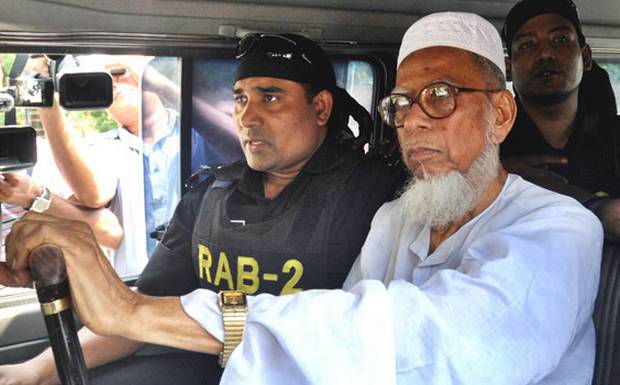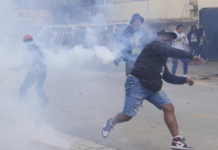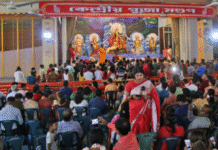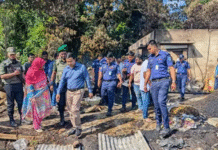The International Crimes Tribunal Act does not specify what happens to a case if the accused standing trial dies.
The prosecution and defence lawyers in the case against war crimes accused Jamaat-e-Islami leader AKM Yusuf, who died on Sunday, are saying they must wait for the tribunal’s order to find out what happens to the case.
A prosecutor told bdnews24.com the tribunal could close the case after making some observations.
Tribunal prosecutor Turin Afroz said, “Former Yugoslav and Serbian President Slobodan Milosevic died in jail while during trial for war crimes. After his death, the court issued a 42-page observation.”
The prosecutor believed the tribunal could issue a similar observation in Yusuf’s case.
Prosecutor in charge of Yusuf’s case, Zahid Imam, said under Bangladesh Penal Code, a case is closed when the accused dies while on trial. “Since this is not an ordinary criminal case, the tribunal will decide what to do.”
Speaking to bdnews24.com, Defence lawyer Mizanul Islam said: “It is common practice in the subcontinent that cases are closed when the accused die.”
Jamaat’s Nayeb-e-Amir Yusuf, charged with crimes against humanity committed during 1971 Liberation War, died at Bangabandhu Sheikh Mujib Medical University (BSMMU) hospital around 11am on Sunday soon after he was brought there from Gazipur’s Kashimpur Central Jail.
International Crimes Tribunal-2 in the afternoon ordered his remains to be handed over to his family after all formalities were completed. But the order did not say anything about the case.
Arguments in the case were scheduled to begin on Feb 12. Yusuf was indicted by the war crimes tribunal on 13 war crimes charges, including killing, genocide and arson on Aug 1 last year.
Yusuf was arrested on May 12 at his Dhanmondi residence hours after the tribunal issued the arrest warrant. The same day, the tribunal had taken into cognisance the charges against Yusuf submitted on May 5.
According to the prosecution, Yusuf was the one who coined the term ‘Razakar’ for the auxiliary forces raised to collaborate with Pakistan during that time.
It was Yusuf, then Jamaat’s head of Khulna region and a former MP, who trained 96 Jamaat activists as Razakars in Khulna. He also led all the anti-liberation war forces including the infamous Peace Committee, Razakars, Al Badr and Al Shams in the region.
The charges also said Yusuf was both directly and indirectly involved in many crimes against humanity including genocide, murder, rape, loot and arson that took place in different areas of Khulna during the war.
After the war, the Jamaat leader was sentenced to life imprisonment under the 1972 Collaborator’s Order. But he was released from jail on Dec 5, 1973 after the government of Bangabandhu Sheikh Mujibur Rahman granted general amnesty.
Source: bdnews24










